What is a Pave Ring Setting? And Should You Buy One?
The word pavé (pronounced as pah-vay) originates from a French term and is directly translated as “to pave”. So, what is a pavé ring setting and how does it actually looks like in real life?
Basically, a pavé diamond ring is a design where many tiny diamonds are set closely together with minimal spacing between them. These smaller diamonds (melees) are typically held in place by small amounts of precious metal beads or shared prongs.
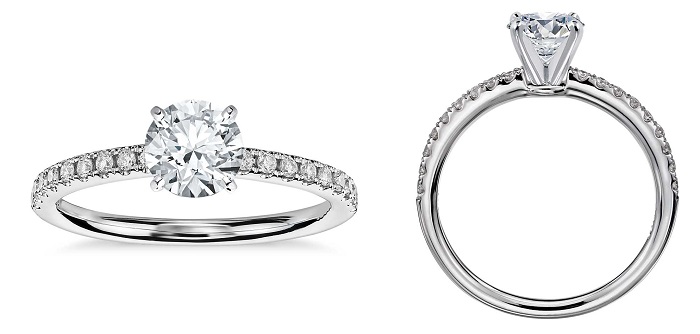
Another way to remember the design is to visualize a road surface that has been covered, or paved, with gems.
In well-crafted settings, the pavé shanks create glistering rows of sparkle and help accentuate the center stone. As you can see in the example above, the profile view shows a streamlined row of diamonds lined up neatly on the shank (like cobbled pebbles on a pavement) .
The Benefits of Choosing a Pavé Setting
Beautifully designer pavé diamond settings from Danhov (left) and Simon G (right)
The primary advantage of pavé set diamond rings is that they offer “more bling for less buck” and add another dimension of sparkle to the overall appearance.
Pave diamonds on the shank can also help emphasize the center stone to make it look bigger than it is. This effect is even more pronounced when a thin band design is utilized.
When pave diamonds are clustered together, it can create an illusion of a single large diamond. This means that you can enjoy better cost efficiency without having to pay for a big carat size diamond in order to achieve a similar look.
Another advantage is that they are a popular category of rings offered by many jewelers. As a result, there are plenty of designs to choose from. So, browse around a little and I’m sure you have no problems finding a design that suits your tastes and preferences.
Fun Fact: I'm a Big Fan of Pavé Settings And Had Bought 3 Different Ring Designs For My Wife!
Why? The reason is really simple and that’s because pavé rings are designed for maximum sparkle and bling. FYI, the first ring I bought for my wife is a thin shank pavé ring with a heart shaped diamond. Subsequently, I’ve bought 2 other pavé rings for her: a paved floating halo ring from Blue Nile and a fancy yellow cushion cut halo ring from Leibish.
The Disadvantages of Choosing a Pavé Setting
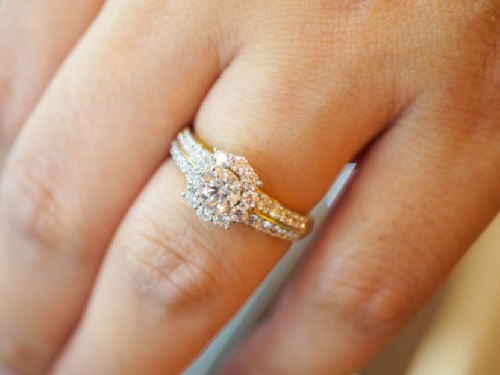
Here at Beyond4cs.com, we believe in helping readers find what they need and offer our honest opinions in your interest. While pave settings have significant advantages, we are not going to just paint a rosy picture.
There are several drawbacks you should be aware of when considering them.
First of all, pave settings are usually more expensive compared to a simple, plain solitaire ring. Besides additional material costs associated with the melees, pave rings incur higher workmanship costs due to labor intensive processes (e.g. mounting diamonds one-by-one).
On a similar note, quality is key when making a pave ring. Good craftsmanship produces better matched melees and reduces the risk of stones coming loose. And to state the obvious, better craftsmanship results in higher manufacturing costs which trickles down to the final price of the setting.
Unlike solitaire ring designs, pave settings incorporate a lot of melee diamonds and have many nooks and crannies on the ring. Since dirt and grime can get trapped in these areas, pave settings require a more regular cleaning schedule in order to keep them in tip-top condition.
Depending on your line of work or lifestyle, you may find pave rings to be a hindrance. For example, particularly in occupations like nursing which require the frequent wearing of gloves, a pave ring may be unsuitable due to the sharper edges they have.
Lastly, pave-setting engagement rings can be very hard or impossible to resize especially if the melee diamonds cover a huge portion of the shanks. To avoid unnecessary hassle, you definitely want to get your ring size right and avoid any post-purchase modifications.
The Different Types of Pavé Settings Available in the Market
Over the years, bench jewelers have developed better fabrication techniques and infused the creativity from talented designers into modern ring settings. If you have a flair for the dramatic and love things that glitters, pave designs will help your jewelry stand out from the crowd and provide that extra glamour.
Let’s check out the various types of pave ring settings available in the market today…
Pave Diamond Engagement Rings And Bands
In its most basic form, the pave ring design features a shank that is covered with rows of accent stones. And contrary to popular belief, beautiful pave setting rings can be very affordable. One fine example would be this 14k white gold setting from White Flash (Benchmark)…
Pave rings are very versatile and with a slight twist in creative elements like integrating milgrain or incorporating geometrical shapes, a completely different style can be achieved. As you can imagine, the design possibilities are endless.
Below, I’ve listed some of my personal favorite designs from reputable vendors…
This scalloped halo diamond engagement ring from BlueNile.com has stunning resemblance to a flower. The setting also utilizes a tapered pave shank to accentuate the center stone for an amazing piece of jewelry.
In a rope-like manner, this petite setting features intertwining shanks with pavé-set diamonds. It’s simple, elegant and gorgeous.
An artistic masterpiece that incorporates a paved shank, a halo basket and milgraining performed by hand. The bezel set center stone is mounted in a custom made basket which features 2 surprise diamonds on the gallery. Using only the best cut melees, this majestic setting provides eye-blinding sparkle and is a joy to look at.
3-stone engagement rings symbolize the 3 phases of a couple’s lives together: past, present and future. This super intricate designer ring is extremely popular due to the intricate details and the deep seated meaning it provides.
French Pave (Fish Tail Pave) Ring Settings
Unlike regular pave designs, the French pavé utilizes a unique method of setting the melees for the purpose of maximizing sparkle with almost no visible metal. This is usually achieved via a V shape cup resembling a “fishtail” and exposes the sides of the melee diamond to allow more light to enter.
Delicately made with a smooth flowing shank, this French pave accented ring is combined with a simple prong head. If you are looking for the perfect way to express your love and make her say “Yes!”, this is the setting for you.
If you are looking for better finger coverage, this reverse split shank ring setting offers serious bling and finger real estate. On each of the shanks are French pave-set melees that are meticulously lined to make heads turn in awe.
This amazingly Vatche french pave diamond ring combines an open cathedral head with a shank that is lined with melee diamonds. With a graceful and swan-like elegance, the ring exudes a touch of class on a completely different level.
Pave-Halo Combination Ring Settings For Ultimate Brilliance
A pave setting combined with a halo offers the best of both worlds in terms of sparkle and the illusion of a single large stone. Pave-halo rings are very popular with women who love being in the limelight (literally) and for couples who want to get better value for money.
Seen below is a breathtaking design from White Flash which utilizes A CUT ABOVE® melees in the construction of the ring. The meles cover 3/4 of the shank and the diamond encrusted halo creates an illusion of a single large diamond when seen at a distance.
This unique ring design from Blue Nile features a knock out pavé setting that is carefully made for consistency and maximum brilliance. In my opinion, this is one of the most beautiful settings that Blue Nile has in their inventory.
Now, I must admit that there is some degree of bias towards this floating ring design because I personally bought this for my wife. What drew me towards this design is the affordable price point and unique basket setup.
If you are interested to see close up photographs of the ring and the quality of the craftsmanship, click here.
Braided, or twisted shanks, are a contemporary design element that had been infused into traditional styles. This Verragio twisted split shank design gives the appearance of a loose braid and transforms the ring into a whimsical looking object. Besides a unique appearance, the split shank also provides a better balance and support especially when a large center diamond is used.
Micro Pave Ring Settings – What Are They And How Do They Look Like?
As the name suggests, micro-pave settings actually refer to the use of tiny diamonds (smaller than those typically used in normal pave jewelry) and requires precise technique from a skilled bench jeweler to pull off.
The result of placing extremely small diamonds in this fashion can give rise to honeycomb-like arrangements. When seen at a distance, micro-pave setting rings are spectacularly brilliant. Upon closer inspection, they give a very delicate and smooth appearance due to the minimal use of metals.
This Blue Nile setting which features intricate rows of micro pave-set diamonds can only be pulled off by a master craftsman. With 3 rows of diamonds on each side of the shank, it offers sparkle and brilliance when seen from any angle.
Flawlessly engineered, this 4 prong setting from White Flash wraps the center diamond securely and floats it above a row of brilliantly set pave diamonds. The sleek thin band helps to create contrast and elevates the center stone towards the viewer.
This fluid rose gold ring features a sublime micro pave made of 8 stones on each side of the shank. Carefully selected to create a size gradient, the side stones draw your eyes towards the center showpiece.
Let’s Wrap Things Up
So, there you have it. I hope you have a good understanding on what a pave setting is and the different types of techniques employed by bench jewelers to create them. We’ve also revealed some of the best designs for various categories of pave rings.
Which of these is your favorite design? Or did we miss something out? Let us know by leaving a comment below.
Also, while good bench craftsmanship is crucial, the choice and quality of the center stone is of equal importance. We recommend reputable vendors like Blue Nile, White Flash and Brian Gavin for the best selections of diamonds available.
Not only do these retailers offer a wide selection of diamonds for cherry picking, they also offer diamonds with the best light performance and cut precision at competitive prices.
Lastly, remember to have fun! Happy shopping!
Related Articles
Leave A Comment

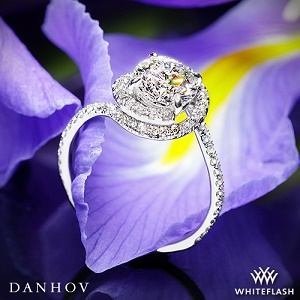
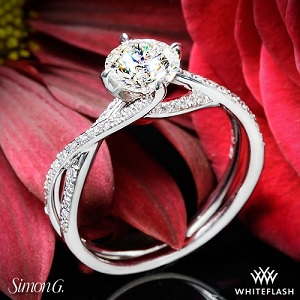
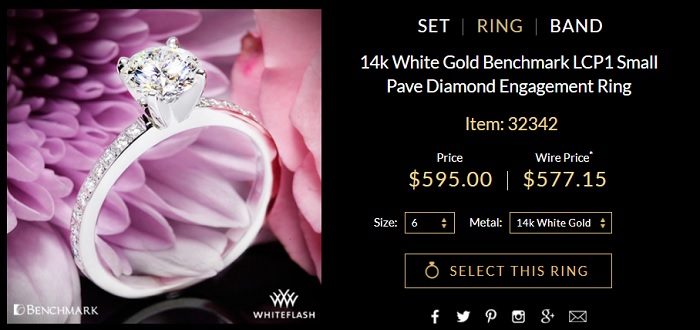
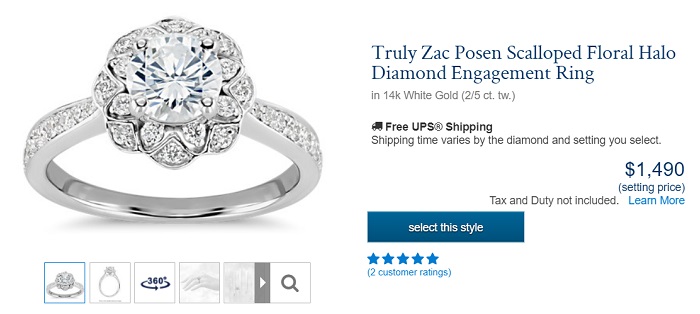
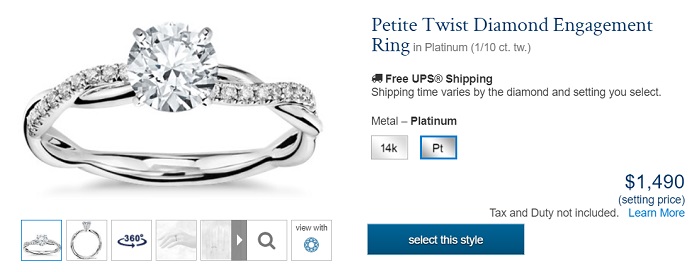
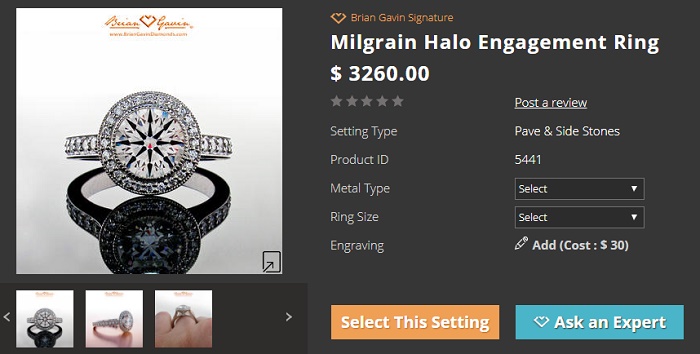
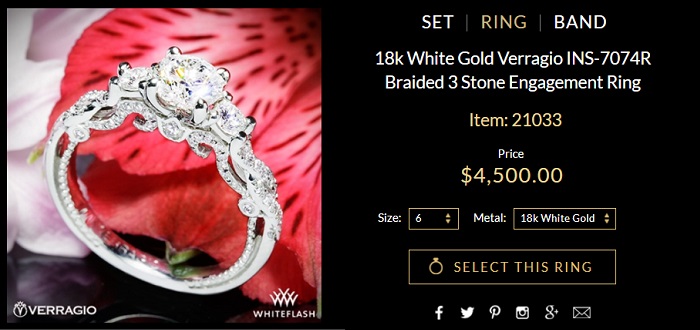
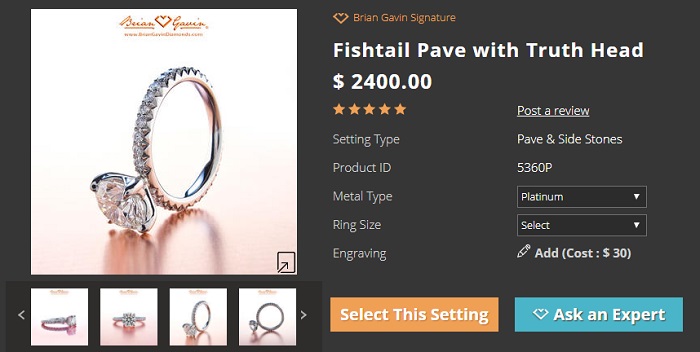
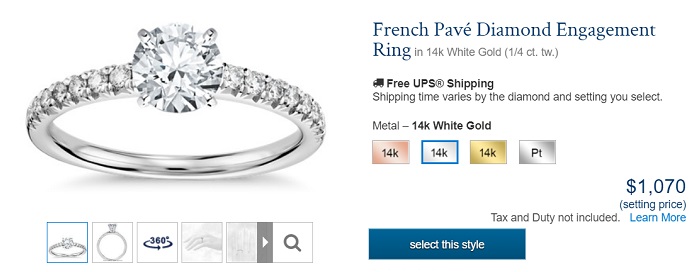
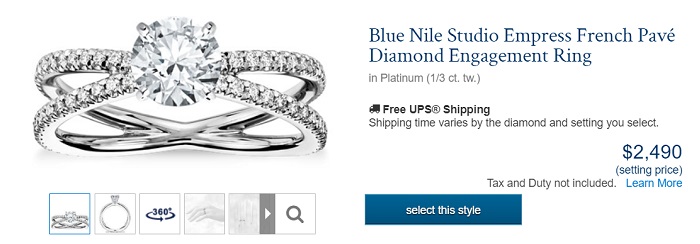
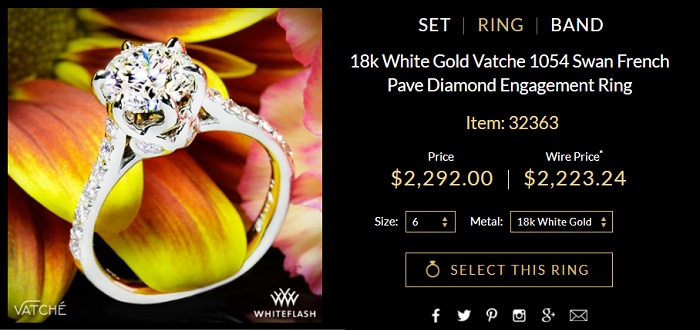
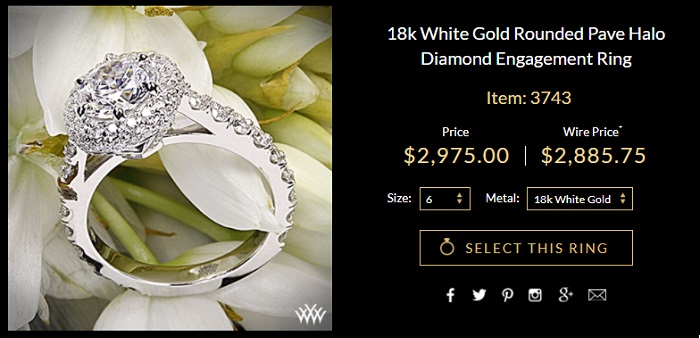
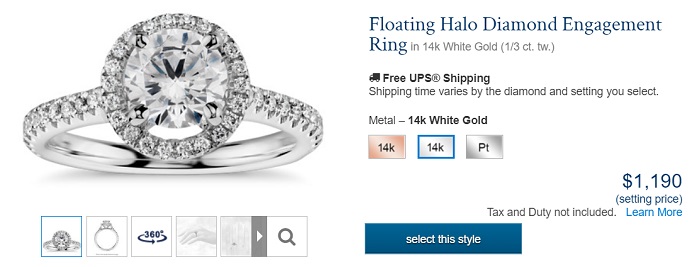
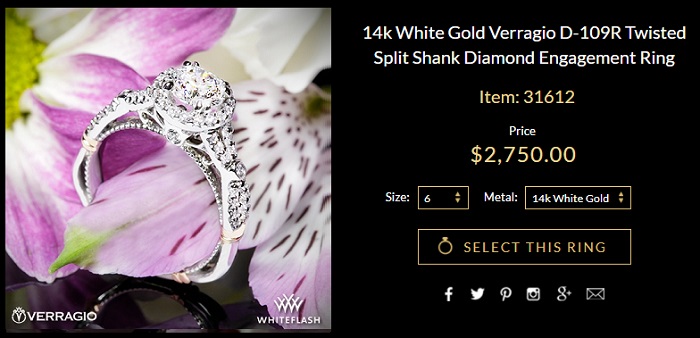
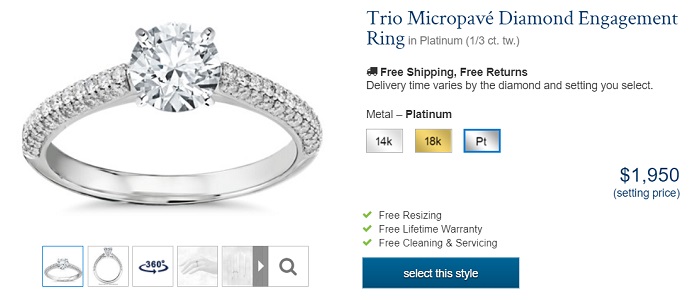
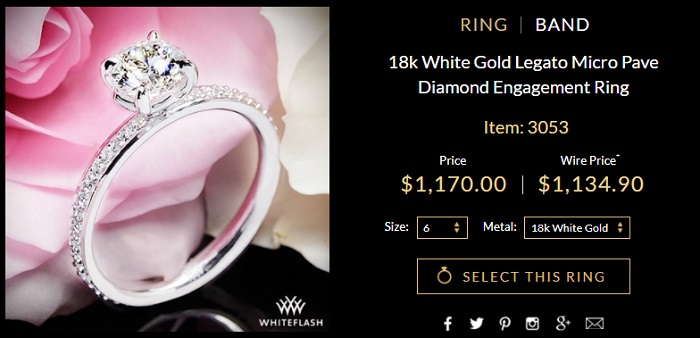
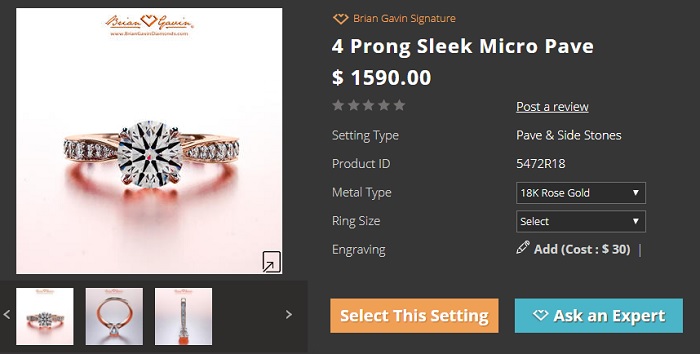
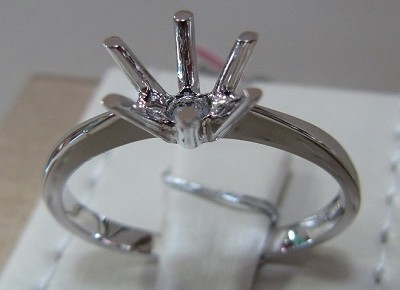
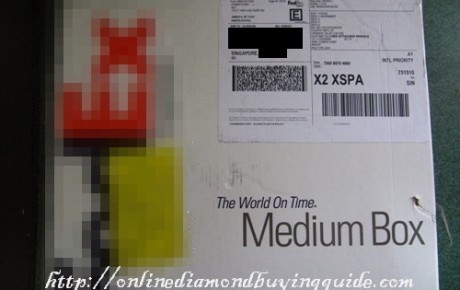
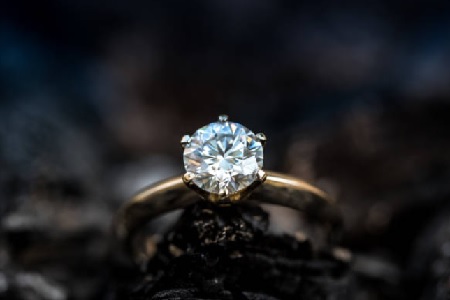







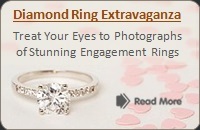
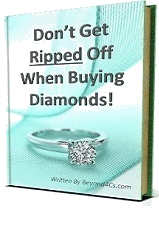

14 Comments
What’s the difference between a pave setting vs channel setting?
For a channel setting, the stones are seated within a groove (usually parallel) inside the shank. Usually, squarish or rectangular shapes of melees are used. For example, emerald cut or princess cut. Due to the way channel rings are constructed, they typically have a structured geometric patterning and contain larger size diamonds.
The main difference between a pave ring and a channel set ring is the absence of prongs in the later. Channel settings do not have protruding areas which can catch on to things.
I was looking at a listing on eBay and found a second-hand ring that is described with 1.40 ctw micro pave diamonds with a 0.7 ct center stone. What are pave diamonds (in ctw) referring to in this case? Are micro pave diamonds real?
As far as I know the smaller stones used are real but they are typically cut from unwanted leftovers or rough diamonds. Really, there’s no reason for any reliable vendor to use fake stones in pave jewelry. The cost of melee stones are pretty low in relation to the overall cost of the whole piece. It doesn’t make sense for a jeweler to destroy his/her own reputation over insignificant costs.
I hope you can help me with this question. My fiancee proposed with a solitaire ring and we are now in the process of shopping for the wedding band. There’s a particular french pave wedding band design that I love. Would the french pave wedding band look weird when worn with a solitaire ring?
I think it really depends on personal preferences. Did you have a chance to try it on with your current engagement ring? If you did, then you probably have to think about it for yourself. Otherwise, a good store return policy would allow a risk-free purchase and enable you to try it to see if it fits.
Great insight and writing. I came in with zero knowledge about engagement rings and left with a better understanding of the different types of pave settings. I’ve read the pave diamond definition elsewhere as “a setting with lots of smaller stones” but yours was more concise and had the graphics to explain better. I have a question: are pave diamonds real or do they use fake stones?
It means that the total carat weight of all the smaller stones add up to 0.7ct (1.40 minus 0.7).
Thank you for your prompt response. I did see that White Flash has melees (what exactly is a melee and how does that compare to micropave?) and a better selection of bands, with prominent names suppliers.
Question: I like a band that feels relatively “heavy in the hand” but buying online I can’t experience that. Does buying a Tacori band, for instance, imply that they will utilize slightly more gold/platinum in the band than some no-name band at my local jeweler? I assume lower quality bands most likely keep the gold weight as light as possible to keep the profit margin better–is that a fair assumption?
Another question: I have a poorer quality micropave band that “catches” on everything (sweaters, pants, causing pulls.) Is this just the nature micropave, or just because the ring is less than top quality (bought on Diamond Row!)? In other words, without being able to try a ring on that I will buy online, should I just assume a micropave style will always be rougher compared to, say, individually pronged (and larger) stones?
Looking forward to your responses.
Hi Paul, thank you for the very helpful website.
I am looking for a diamond wedding band (married 37 years) and I find following the directions to buy a diamond engagement ring helpful, but not necessarily exactly what I need for a band of diamonds. The grading system, while helpful, isn’t quite as important as it is for a solitary diamond as there are usually several smaller stones or chips almost depending on the ring. So, my question is this: what websites would you recommend for a diamond band? I looked at the three you recommended and found White Flash had the best variety. I was somewhat disappointed in the selection from James Allen.
Any assistance in this process would be appreciated.
It depends on the type of designs you are looking at. James Allen is applicable for more generic designs.
White Flash is an authorized retailer for many of the well known designers in the industry and therefore has better selections.
https://beyond4cs.com/go/wf/
I personally like White Flash because they utilize better quality melees in the rings; so that’s a plus point.
Melees = small diamonds typically used in bands and settings.
If you want a band that feels heavy, you definitely need to stick with platinum. Buying a branded piece of jewelry doesn’t automatically qualify it as being high quality nor does it necessarily make it better than one made by the local jeweler. It depends on a case by case basis.
Tacori is one that sets high standards. I can’t say the same for others sold in large chains like Jared or Reeds.
My wife owns and runs a dress shop. Prongs on the ring will likely snag on dress fabric. I have gravitated to channel set rings, but are pave’ just as safe?
It depends on the craftsmanship of the rings. Pave rings have alot more surfaces that can catch onto linen. Since your wife would be working with her hands most of the time, I would advice getting a channel setting for her.